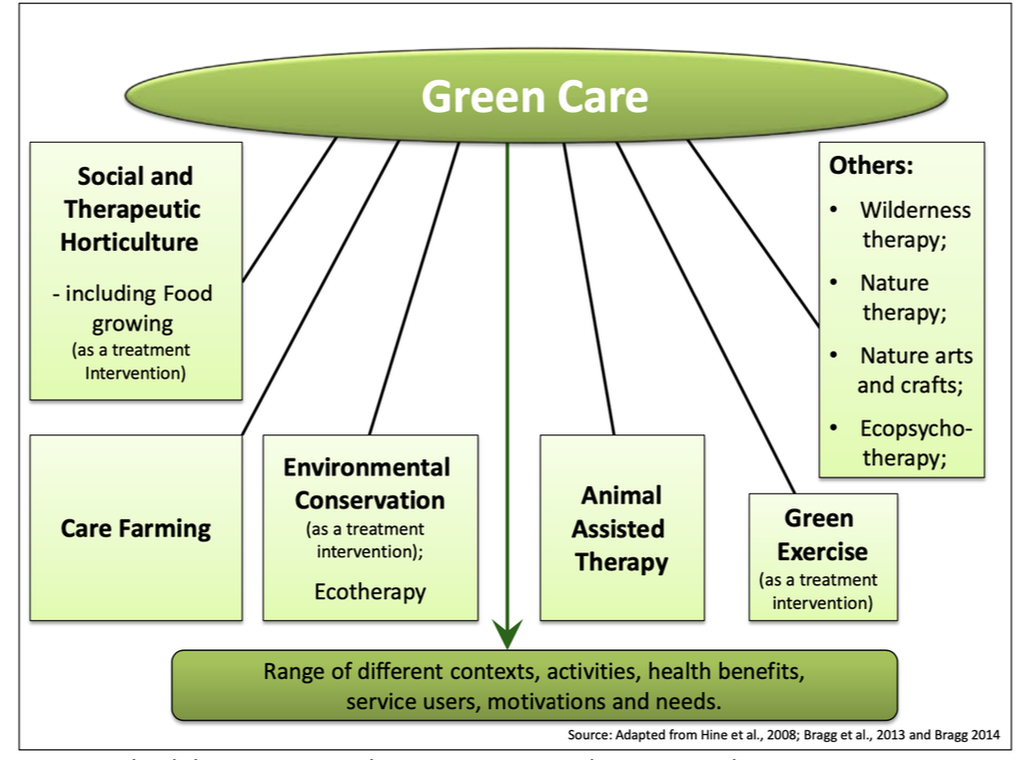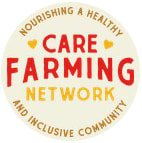What Exactly is "Green Care"?
"Green Care" is a term used for human health interventions that center around nature and animals, based on their inherent connection with human wellbeing. Although Green Care is more popular in the U.K., it is gaining traction in the U.S., and our projects are evidence of that.
How is Green Care beneficial?
The adaptability of the environment, the tasks, and the use of a living medium make the different forms of Green Care hugely powerful for providing a wide range of benefits.
|
The benefits of Green Care have been shown to include both psychological and physiological effects. There is sound evidence showing that exposure to the natural environment can reduce stress, enhance mood and promote well-being.
Physiological benefits of Green Care range from passive association with green spaces to physical benefits via active interaction with the natural environment. The formalized approach of Green Care interventions uses the living medium of nature for therapy to encompass social, personal and educational skills development. Green Care also gives people the opportunity to be involved in interesting and meaningful activities, to be part of a social group and enjoy its company, and to take part in a physical activity or exercise. This includes activities such as food growing or farming, which can also provide additional benefits such as a supply of healthy food. |
Properly managed and resourced interventions that use Green Care can provide benefits for individuals and for our public services, our economy and society.
Green Care can provide:
Green Care reduces the emphasis on illness and promotes health, recovery and/or rehabilitation and social well-being. Green Care interventions can also provide benefits beyond those for the individual. These include:
- Health, well-being, and social benefits for individuals from a wide range of vulnerable groups
- A more holistic approach to multiple health needs of an individual and can achieve multiple outcomes simultaneously
- Opportunities for learning, education and skills development
- Reduced reliance on health and social care services in the future.
Green Care reduces the emphasis on illness and promotes health, recovery and/or rehabilitation and social well-being. Green Care interventions can also provide benefits beyond those for the individual. These include:
|
Health services – reducing costs for, and pressure on, services through:
Social care – reducing pressures on the services through:
Education – raising attainment levels through opportunities for non-classroom based learning and qualification routes Employability – offering skills development, support and employment opportunities for traditionally ‘hard to place’ groups. Social cohesion – through shared community actions and the creation of local green spaces, food growing projects and inclusive enterprises. |
Text above adapted from Green Care Coalition.
Learn More
|
Photography by Claire Short ©






